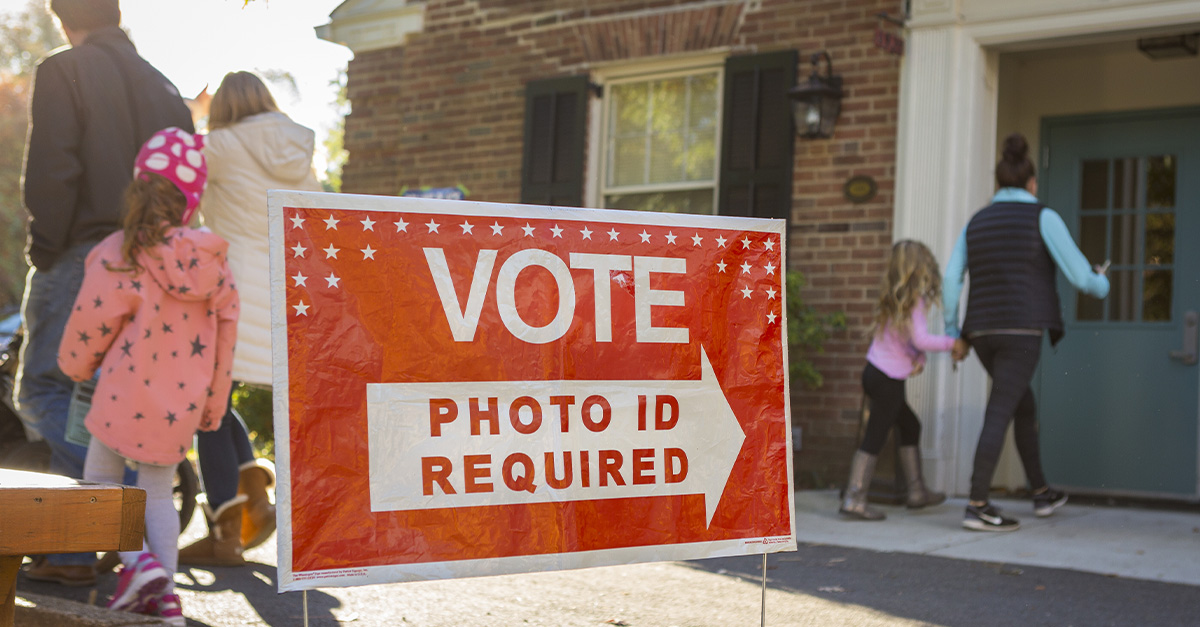


Get a free copy of Parental Rights & Education when you subscribe to our newsletter!

The Supreme Court has agreed to hear a case brought by two North Carolina legislators seeking to intervene and be allowed to rigorously defend the state’s duly enacted voter ID law in a pending court challenge, claiming that the executive branch doesn’t like the law and will fail to put up an adequate defense.
On Nov. 24, the Supreme Court announced that it would hear the case. The controversy goes all the way back to 2013 when the legislature passed a voter ID bill but was sued by the NAACP, who claimed that requiring ID at the polls is discriminatory. Although the Supreme Court justices indicated they would grant a writ of certiorari, the newly elected Gov. Roy Cooper, a Democrat, dismissed the state’s petition. Josh Stein, the new attorney general, claimed that the law burdened the right to vote, and Cooper celebrated the Court’s denial of certiorari.
In 2017, the General Assembly passed another law that gave the legislature a role in future court challenges, granting that,
“[W]henever the validity or constitutionality of an act of the General Assembly . . . is the subject of an action in . . . federal court, the Speaker of the House of Representatives and the President Pro Tempore of the Senate, as agents of the State through the General Assembly, shall be necessary parties.”
In 2018, North Carolina voters amended the state constitution to require voter ID to vote in person. Yet when the General Assembly acted on that demand with a severely watered-down voter ID law, Cooper vetoed it, saying that it had “sinister and cynical origins” and was “designed to suppress the rights of minority, poor and elderly voters.”
The General Assembly overrode his veto, but the law was met with a legal challenge. North Carolina law requires that the Speaker and President of the Senate be listed as defendants in any legal action, but they have been denied that right by lower courts.
House Speaker Tim Moore, R, and Senate leader Phil Berger, R, claim that the executive branch has not put forth a strong defense of the new voter ID law. In their petition to the Supreme Court, they wrote:
“This court should grant review to resolve the important issues presented by this case and to resolve the conflict in authority that they have engendered. These questions strike at the heart of a state’s sovereign authority to designate agents to represent its interests in court. And as this case demonstrates, they are of particular importance in the context of divided government and litigation involving controversial matters.”
The Supreme Court heard a similar case involving Kentucky Attorney General Daniel Cameron in October after he requested that he be allowed to defend the state’s ban on dilation and evacuation abortions. Kentucky Gov. Andy Beshear, a Democrat, decided not to continue defending the law after it was initially struck down, leading Cameron to take up the case.

These cases bring up issues of separation of powers and the sovereign will of the people. It is the legislative branch’s duty to make laws and the executive branch’s responsibility to enforce those laws, whether they like them or not, and that involves defending those laws vigorously when they are challenged in court. For an executive to choose not to defend laws that the people of a state have enacted, whether through a constitutional amendment or through their duly elected representatives, is to usurp the power of the people.
When he was still serving as Kentucky’s attorney general, Beshear gained a reputation for refusing to defend laws he disagreed with. It should come as no surprise that he would shirk those same duties as governor. But Gov. Cooper and Attorney General Stein’s efforts to evade their enforcement responsibilities have been going on for longer, nearly a decade, in fact.
The Supreme Court should certainly grant that legislators Moore and Berger be allowed to defend the law as Cooper and Stein have made their opposition to the law clear, despite it being a law ordered by the people of North Carolina. The people deserve officials who will fight for them.
In America, elected officials are placed in office to faithfully follow the will of the people, not to advance their own will or causes. To take the course of the latter is to become a self-serving tyrant.
To all the elected officials who prefer to play politics than to honor their oath, do your job. If you can’t, then resign and let the people find someone who willingly serves them.
The Supreme Court must follow-through and quash this type of willful, agenda-driven, unconstitutional behavior within the executive branch. Otherwise, what is the point of even having a legislative process?

